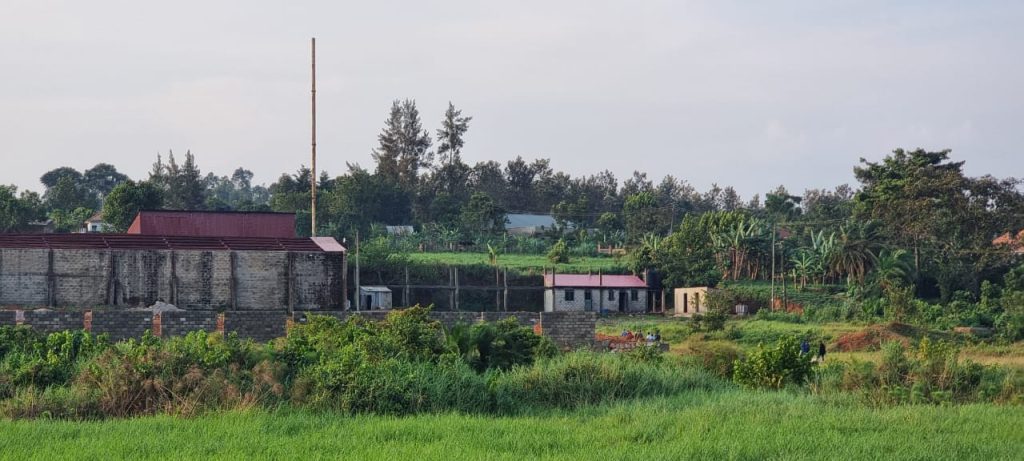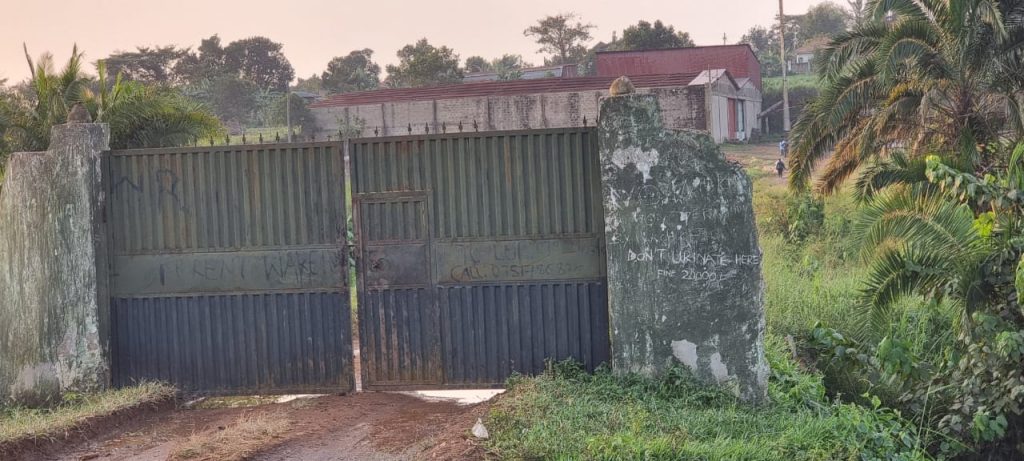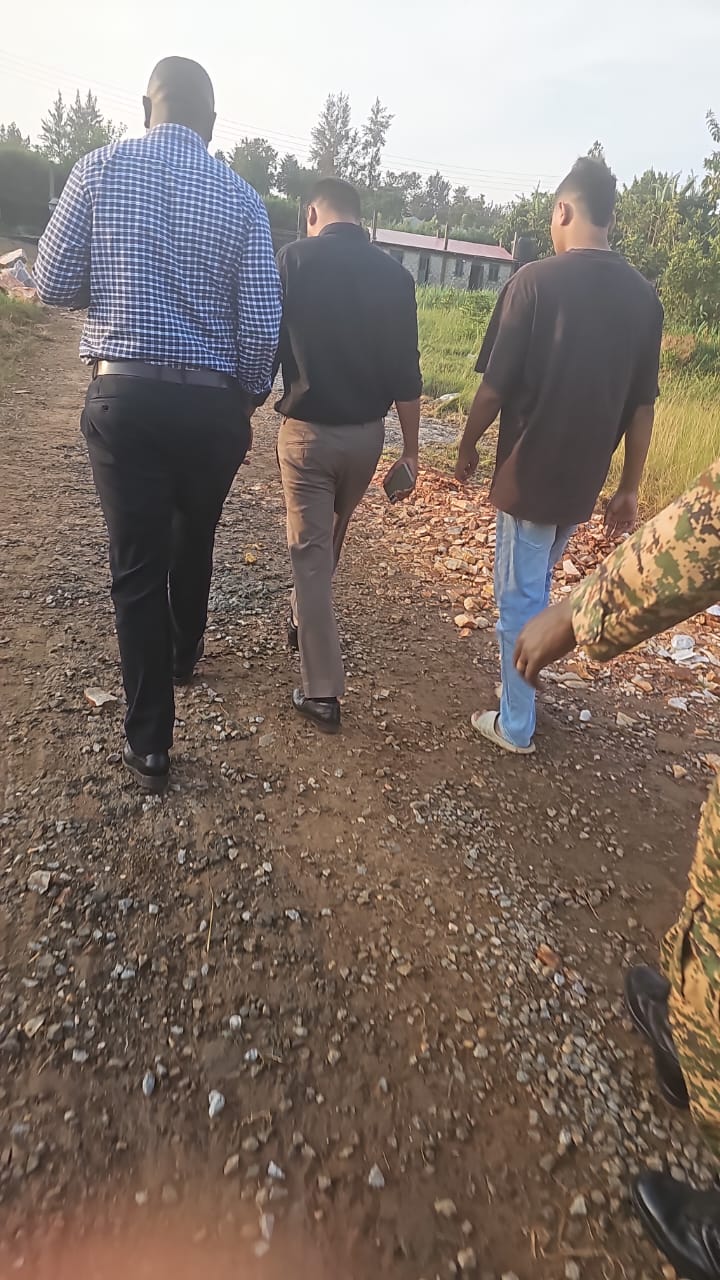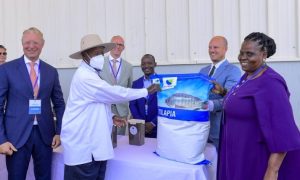Mukono, Uganda| Acting on a specific intelligence, the Uganda Revenue Authority (URA)’s Customs department which is responsible for overseeing the importation and exportation of goods and combating smuggling, on Thursday September 4 , 2025 successfully busted a clandestine manufacturing facility involved in illegal lead export.
The URA and Security raid on the factory, located at Mbalala in Mukono District, approximately 5 kilometers past Mukono town, along the Kampala-Jinja Highway led to the arrest of two administrators who are said to be Bangladeshi nationals in connection with the illegal operation.
Local battery manufacturers have condemned unscrupulous lead exporters of wreaking havoc in Uganda, where the country loses hundreds of tons of lead to these illegal exporters every week.
It is alleged that the unregistered factory situated in a private premises, deliberately covered by bushes from all sides to avoid detection, was tactfully raided by URA officers apprehending top managers for engaging in the illegal production process. It is also alleged that the factory had employed foreigners with queried immigration statuses.
“The turnover and employment are currently under threat should the trend continue. We wonder about the long term viability of exporting raw materials to manufacturers abroad and turn around and buy manufactured batteries from them.The industry has heavily relied on acquisitions of lead through an elaborate process of recycling old automotive batteries,”said one of the local manufacturers.

Battery manufacturers in Uganda have in the past raised issues related to the protection of sources of lead as a critical raw material requirement in the manufacture of automotive batteries in Country to boost the economy. They have always argued that the legal framework and policies should protect raw materials for local industries, but currently not much has been done.
Preliminary investigations also revealed that some Chinese and Bangladesh nationals have been on the spot for engaging in Illicit trade which involves smuggling used and waste lead-acid batteries (LABs) to other countries, often for a quick profit and to circumvent environmental regulations. This practice deprives local battery manufacturers of a crucial raw material, leading to higher import costs and job losses.
Illegal dealing in battery lead is a major issue in Uganda, with a focus on smuggling spent lead-acid batteries out of the country. The Ugandan government banned export of lead scrap batteries but implementation and penalties to combat this illicit trade remains a dream and jerky.
In recent years , Ugandan authorities, including the Uganda Revenue Authority (URA) and the National Environmental Management Authority (NEMA), have adopted intelligence-based enforcement to crack down on the illegal scrap metal trade, which includes lead battery scrap.

Some arrests have been made as a result of these efforts, with a particular focus on porous border points such as Busia & Malaba in Eastern Uganda , Mirama Hills in Western Uganda , among other areas which are used by unscrupulous traders to smuggle materials.
Reports indicate that this approach was “bearing fruit,” with arrests of individuals involved , but experts argue that the efforts are meagre.
According to URA ,Smuggling means the importation, exportation, or carriage coastwise, or the transfer or removal into or out of a Partner States, of goods with intent to defraud the Customs revenue, or to evade any prohibition of restriction on, regulation or condition as to, such importation, exportation, carriage coastwise, transfer, or removal, of any goods. In short Smuggling is an activity which involves the importation or exportation of goods with the objective of evading taxes.
Experts say a country achieves better economic growth by developing its own industrial base but smuggling under-cuts prices of the locally manufactured goods thus destroying the market for local products which leads to collapse of local industries.
Smuggling is an offence under the East African Community Customs Management Act (EACCMA); the law that governs importation and exportation of goods.

BIG CRISIS
The Ugandan battery manufacturing sector is facing a crisis due to lack of raw materials as a result of smuggling of lead into the neighboring countries.
The responsible officials and agencies are partly to blame for failing to adequately act, even as the illegal business continues to thrive across the border.
The Ugandan battery manufacturing sector is concerned that if not well handled, the smuggling would stifle the sector in the country.
“Uganda needs a stricter law to support the retention of the raw material for value addition and provide stringent conditions under which exports of lead would be permitted’’, said an expert.
Lead smuggling is rampant in the border towns of Busia, Milama and Malaba, a business which has gone on for some time unabated and manufacturers want culprits arrested.
The country is currently facing a major shortage of raw material because scrap metal dealers are “exporting” used batteries to smelters who, in turn, export refined lead out of the EAC.
“We are also aware of cases of exports of lead metal bars camouflaged as other products. This is a case where we export our manufacturing jobs…which will result in the closure of battery manufacturing in Uganda’’.
Uganda has potential in battery manufacturing but that is hampered by the irregular and illegal handling of recyclable lead, the most economical source of raw material for the battery manufacturers anywhere in the world.
The local manufacturers use locally acquired raw material from recycling spent-lead-acid -batteries (SLABS).
The major importers of the raw battery scrap material from EAC include Dubai, India, Korea, Malaysia, China, and Indonesia among others.
Battery manufacturers in Uganda have invested heavily in the last four years in the expectation that the government would strictly enforce the protection of the local companies by barring lead export.
























